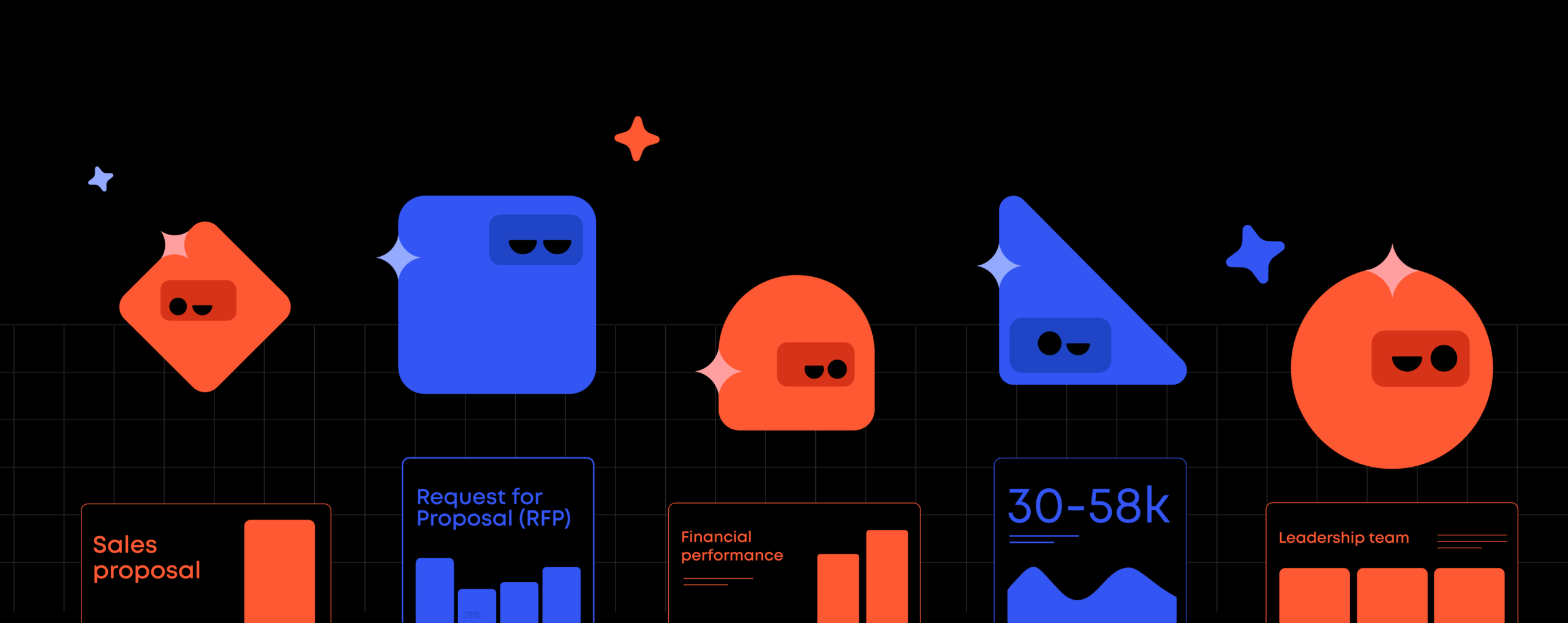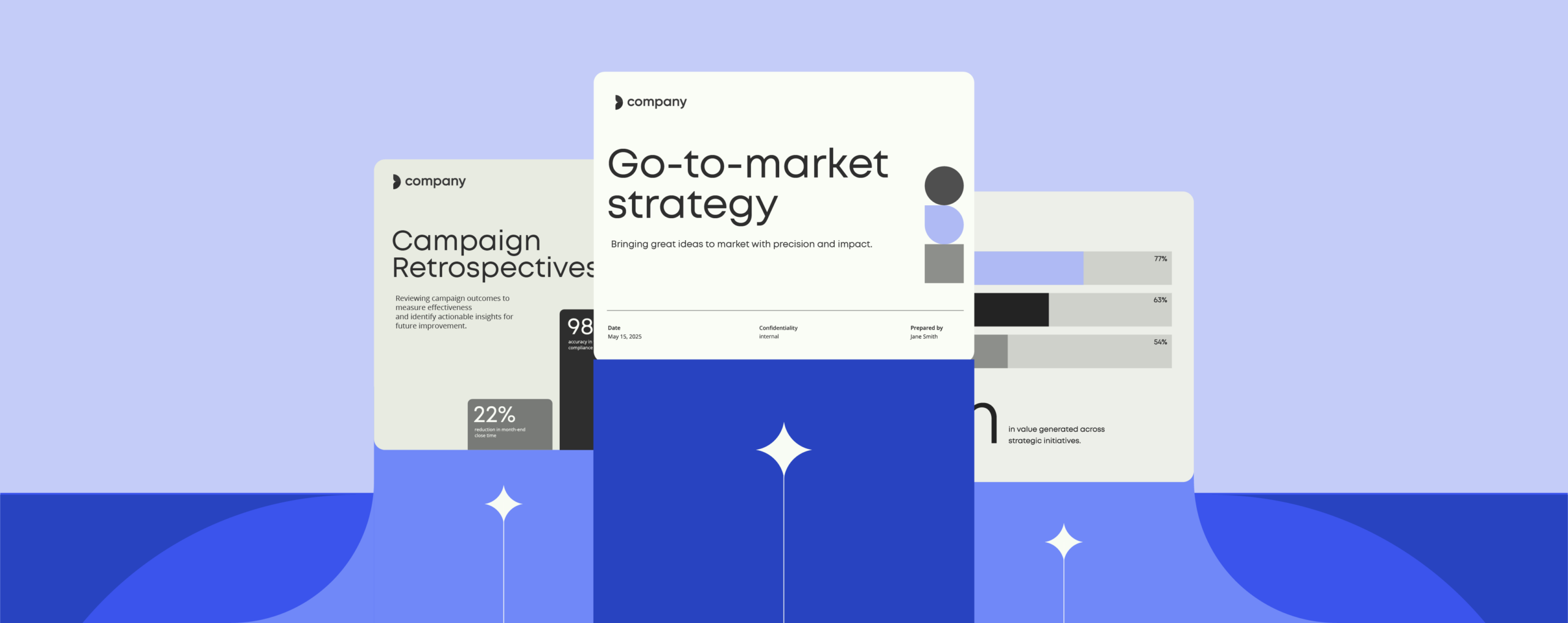AI agent providers to watch: A 2025 enterprise tool comparison
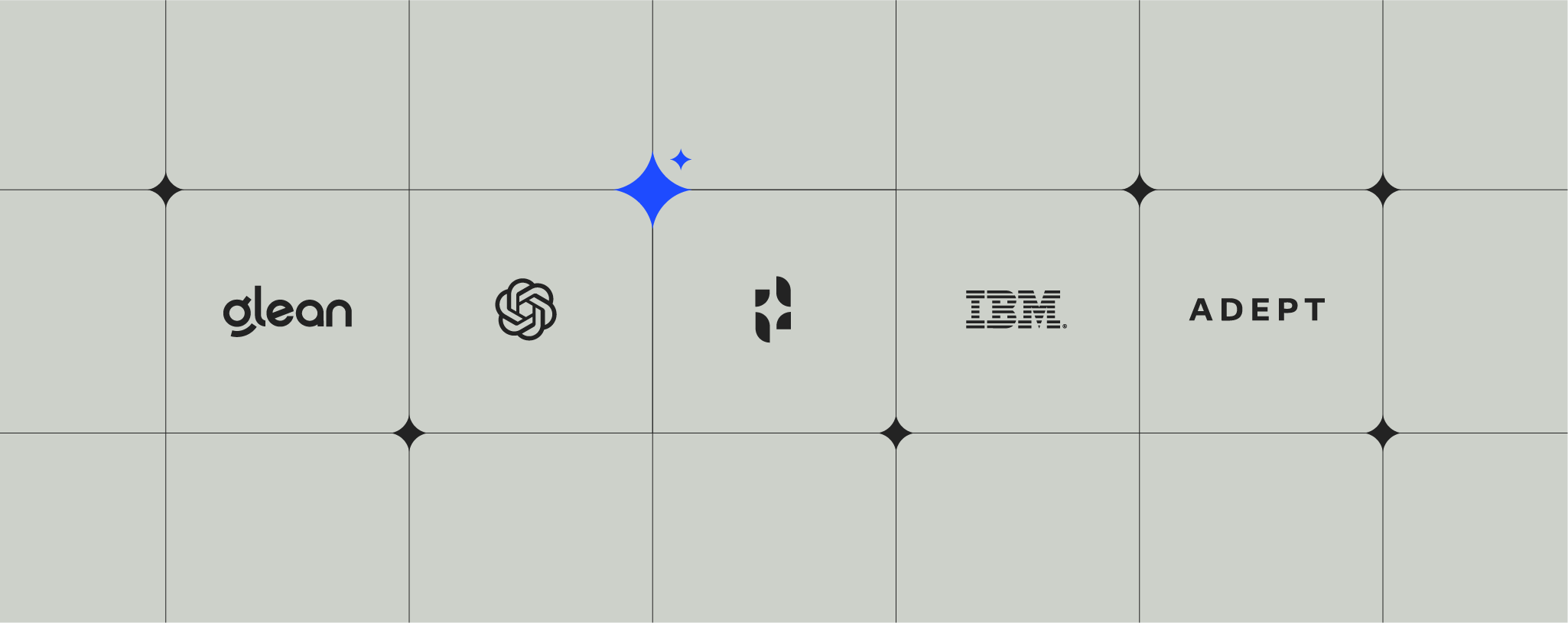
Meet the AI agents helping enterprises automate tasks, manage content, and optimize workflows.
In 1956, a 10-person team from Dartmouth College set out to study artificial intelligence. They proposed to spend two months exploring “how to make machines use language, form abstractions and concepts, solve kinds of problems now reserved for humans, and improve themselves.” At the time, they predicted that “a significant advance can be made…if a carefully selected group of scientists work on it together for a summer.”
Their timeline may have been a bit off, but those researchers paved the way for the latest breakthrough in artificial intelligence: AI agents.
Today’s AI agents combine every element of that original Darmouth study, and they’re quietly transforming how businesses run. They answer questions, generate documents, update CRMs, flag compliance issues, and can draft your meeting notes in seconds—and that’s just scratching the surface.
Behind these agents is a fast-growing ecosystem of platforms and providers, each offering different levels of intelligence, automation, and enterprise readiness. Some focus on content creation. Others excel at workflow automation or enterprise search.
In this article, we’ll look at the companies leading the AI agent charge. We’ll also break down what to look for when choosing a platform that fits your needs, ensuring your agents deliver real results.
What are AI agents and why enterprises need them
AI agents are intelligent software programs that can understand goals, make decisions, and act on them—often without human input. They go beyond simple automation by using natural language processing, machine learning, and real-time data to complete complex tasks across business systems. If you’re new to the concept, this explainer on AI agents is a good place to start.
In an enterprise context, AI agents are becoming essential tools for handling high-volume, repetitive work: generating reports, routing documents, answering internal queries, flagging compliance issues, etc. Because they can adapt to different environments and learn from feedback, they’re well-suited to modern workflows that demand both speed and flexibility.
The value they bring comes down to three core advantages. First, they increase speed by working continuously and instantly responding to triggers. Second, they incorporate intelligence by learning patterns and making context-aware decisions. And third, they help reduce costs by removing the need for manual intervention in routine processes.
Top AI agent providers in 2025
Keep up with AI
Get practical tips and real stories on how AI is changing document work. Stay informed and make smarter choices for your team.
The AI agent landscape is evolving quickly, with new players entering the market and established providers racing to expand their capabilities. Here’s a snapshot of the companies leading the way in 2025.
OpenAI
OpenAI is best known for its large language models, GPT-4 and GPT-5, which power ChatGPT and many of the tools built on its API. While not an AI agent platform in the traditional sense, OpenAI enables agent-like functionality by allowing developers to create customized assistants with memory, tool use, and context awareness.
Top use cases: Customer support bots, internal knowledge assistants, automated data analysis, and research summarization. Enterprises can use OpenAI to build tailored agents that respond in natural language and integrate with internal tools.
Standout feature: OpenAI’s Assistants API gives developers a way to build agents with persistent memory and function calling, allowing them to complete multi-step tasks that span across tools and conversations.
IBM Watson
As one of the earliest enterprise AI providers, IBM Watson offers robust AI services with a strong focus on transparency, governance, and domain-specific intelligence. Its AI agents have been used in complex industries like finance, healthcare, and insurance.
Top use cases: Virtual customer assistants, automated claims processing, compliance monitoring, and clinical decision support. Watson excels in regulated environments with high data security needs.
Standout feature: IBM Watson’s natural language processing is tailored for industry-specific needs, including healthcare and legal, making it a go-to solution for enterprises that need specialized language understanding with full audit trails.
Adept
Adept is building a multimodal agent that understands the context for the information that appears on the screen. Rather than writing code or calling APIs, Adept’s agents interact directly with web apps by clicking, typing, and navigating interfaces.
Top use cases: Automating browser-based workflows like sales ops, marketing campaign setup, and CRM updates, especially where traditional automation tools fall short.
Standout feature: Adept’s agents operate visually, using your existing UI instead of needing deep integrations. This opens the door to automation in tools that aren’t typically AI-friendly.
Glean
Glean is an enterprise knowledge assistant that helps employees find information across emails, documents, calendars, and internal tools. Its AI acts like an internal agent that understands context and retrieves precise answers from across your tech stack.
Top use cases: Speeding up onboarding, reducing internal support tickets, and helping employees find relevant knowledge without needing to search manually.
Standout feature: Glean’s semantic search understands intent, not just keywords, delivering context-aware answers that pull from multiple data sources in real time.
Templafy
Templafy focuses on document automation for enterprise organizations. Templafy’s document agents help teams generate, update, and validate business content, ensuring consistency, compliance, and brand alignment across departments.
Top use cases: Automating the creation of legal contracts, sales decks, HR documents, and internal reports within Microsoft 365 and Copilot as well as Google Workspace.
Standout feature: Templafy’s document agents combine AI with business logic and brand governance, automatically assembling documents that are both accurate and fully compliant.
ADDITIONAL CONTENT
Embed AI where it matters most—your documents
Discover how Templafy’s document agents work inside Word, PowerPoint, Excel, and Copilot to keep every document accurate, compliant, and on-brand.
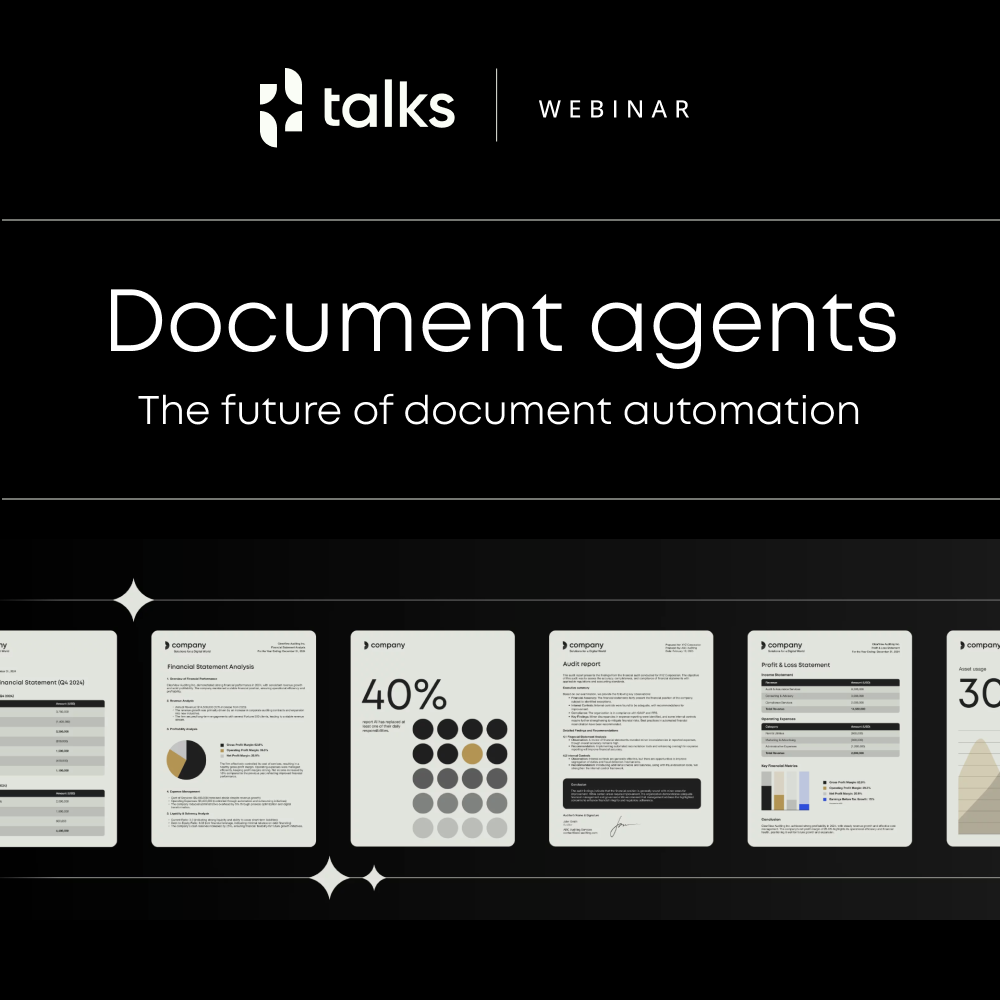
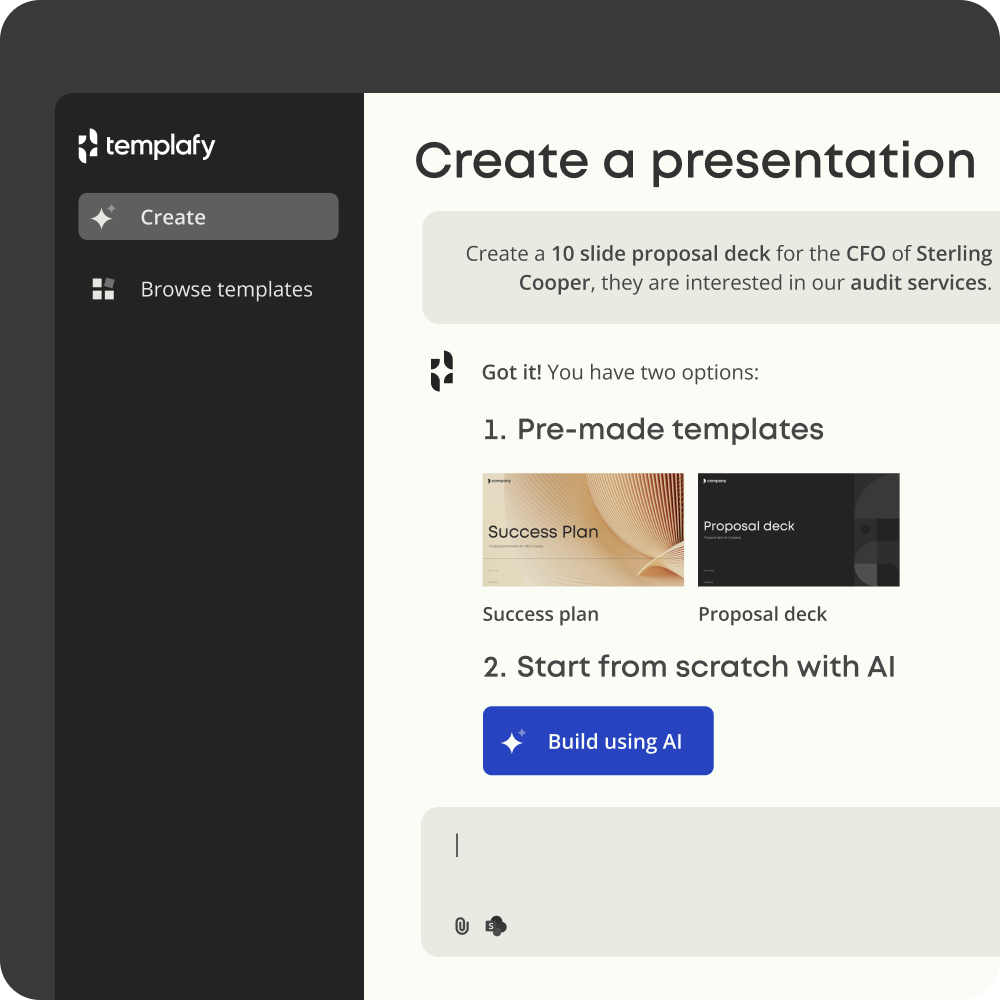
Key capabilities of enterprise AI agents
While many people think of AI agents as glorified chatbots, they have a lot more going on behind the scenes. They’re intelligent systems built to operate across tools, teams, and workflows. Here are the core capabilities that make them valuable in various business environments.
Context-aware decision-making
AI agents can interpret data, understand intent, and make informed decisions based on context. For example, a document agent might recognize that a sales contract is missing a compliance clause and suggest the correct language—before the user even notices the issue.
Cross-system integrations
Enterprise agents are most effective when they can work across platforms like ERPs, CRMs, and HR tools. Think of an AI agent that pulls customer data from Salesforce, updates a report in PowerPoint, and triggers an email draft in Outlook, all in one automated flow. This kind of orchestration saves time and reduces manual handoffs.
Process automation and optimization
AI agents can automate repeatable tasks like populating forms, routing approvals, or compiling performance reviews. Over time, they also learn from usage patterns to suggest faster, smarter ways of working. In finance, for example, agents are being used to reconcile accounts and flag anomalies in real time.
Language understanding and user interaction
Strong natural language capabilities allow agents to interact conversationally, whether via chat interfaces, voice assistants, or embedded UI elements. This means employees can “ask” an agent to generate a presentation, summarize a policy, or surface key figures without needing any specific training.
How to choose the right AI agent for your enterprise
Choosing the right AI agent software means finding a tool that fits your business, scales with your needs, and meets enterprise-grade requirements. Here are four key factors to consider when evaluating options:
1. Compatibility with your existing tech stack
The best AI agents integrate smoothly with tools you already use, like Microsoft 365, Google Workspace, Salesforce, or SAP. Look for platforms that offer native integrations or robust APIs to minimize custom development and speed up deployment.
2. Scalability and performance
Your AI agent should handle high-volume tasks reliably, even as your organization grows. Check whether the software supports multi-region deployments, load balancing, and real-time responsiveness under pressure.
3. Security and compliance
Enterprise AI tools must meet strict data protection standards. Look for solutions that support GDPR, SOC 2/3, ISO 27001, and other relevant frameworks. You should also assess how the vendor handles data privacy, user authentication, and access controls.
4. Support, training, and vendor reliability
AI agents need strong onboarding, documentation, and ongoing support to deliver real value. Look into the vendor’s training resources, customer success services, and track record with similar organizations.
Sample evaluation checklist:
| Criteria | Questions to ask |
|---|---|
| Integration | Does the platform integrate with our existing tools (e.g., Microsoft 365, Salesforce, SAP)? Are APIs and connectors available for custom integration? Can it access and interact with our internal data sources securely? |
| Scalability | Can the agent handle large volumes of users, tasks, or data requests without latency? Is it built for multi-region or global teams? How does performance hold up under load or during peak usage periods? |
| Security and compliance | Is the solution compliant with relevant regulations (e.g., GDPR, SOC 2, SOC3, ISO 27001)? How is data encrypted, stored, and accessed? Can we set custom user permissions and audit activity logs? |
| Usability | Is the user interface intuitive for non-technical teams? How much training is required for adoption? Does it support natural language prompts and low-code customization? |
| Vendor reputation | What other enterprises are using this tool? Are there relevant case studies, industry certifications, or third-party endorsements? How long has the company been operating in the AI space? |
| Support and training | What does onboarding include (documentation, training sessions, dedicated support)? Is customer support available in our region and time zone? Is there a roadmap for product updates and user feedback? |
| Admin control | Who controls the configurations of the agents? Is there centralized management to ensure adherence to company guidelines? Can we use our own AI models and knowledge databases? |
additional content
The AI vision of Templafy
AI tools are everywhere, but are they where your team works?
Discover how to bridge the gap between AI potential and real productivity.
The future of AI agents
AI agents are evolving from single-task assistants into process collaborators. Over the next few years, we’ll see a shift from isolated automations to fully integrated, agentic workflows that span departments, platforms, and even organizations.
More collaborative, agentic workflows
Instead of siloed agents running individual processes, enterprises will build agent networks that work together across tasks. For example, one agent might draft a proposal while another pulls real-time data from a CRM and a third ensures the content is brand-compliant before delivery. These “agentic workflows” will support more seamless, multi-step collaboration between tools and teams.
Deeper integration with LLMs and autonomy
As large language models (LLMs) continue to improve, AI agents will become more autonomous and capable of nuanced reasoning. This means fewer prompts, more initiative, and better understanding of business goals. Agents will start proactively identifying opportunities—like flagging a contract risk or suggesting a content update—based on context and learned patterns.
Governance, ethics, and regulation will take center stage
As agents gain more access and autonomy, questions around trust, transparency, and accountability will become critical. Enterprises will need clear policies on how agents operate, what data they access, and how decisions are logged. Compliance with frameworks like GDPR and the EU AI Act will be non-negotiable.
Developing an AI strategy to incorporate agents
AI agents are quickly becoming essential to how modern enterprises operate. But as the landscape evolves, success won’t come from adopting just any tool. It will come from choosing platforms that fit your business, scale with your needs, and support long-term goals around security and compliance.
Looking ahead, enterprises should focus on a holistic AI strategy. That means preparing infrastructure, setting up clear governance, and helping teams adapt to new ways of working. The real advantage won’t come from having AI agents; it will come from knowing how to use them wisely.
If you’re ready to see how AI agents can work in your organization, book a demo with Templafy. Our team will walk you through enterprise-ready tools built to automate content, streamline workflows, and ensure brand compliance.

